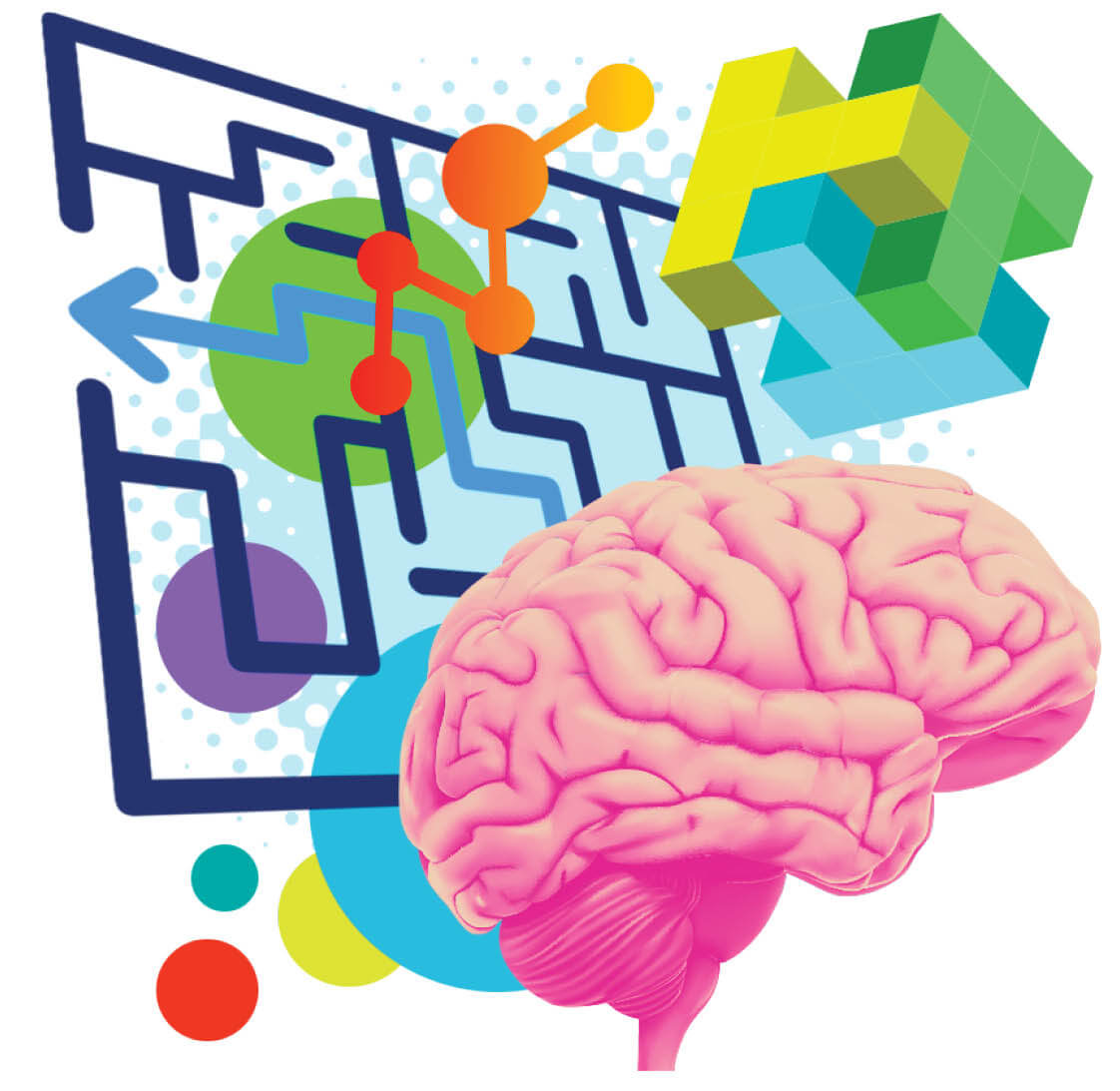Cover Story
YOUR RISK OF ALZHEIMER’S IS LOWER THAN YOU THINK
Asurprising and mysterious trend has arisen in recent years that may help point us toward a cure for dementia: Rates of Alzheimer’s disease in the U.S. are actually dropping. Indeed, your risk may be lower than that of your parents or grandparents.
The percent of Americans age 65-plus with dementia, including Alzheimer’s, fell 30 percent from 2000 to 2016, a 2022 Rand Corp. study found. “I think what it means is that a diagnosis of dementia is not cast in iron,” says Albert Hofman, M.D., chair of the Department of Epidemiology at the Harvard T.H. Chan School of Public Health. “We can influence this.”
In a 2019 study, Hofman found rates had fallen 13 percent per decade over the previous 25 years in North America and Europe—a stretch of time when there were no drugs on the market to treat or prevent changes in the brain due to Alzheimer’s.
Since about 75 percent of people with Alzheimer’s also have problems with the blood vessels in their brain—leaks, narrowing and damage to tiny arteries can kill off brain cells and cause dementia—Hofman suspects “all the things we’ve done in the last 50 years to prevent heart disease and stroke may be related to lower risk for dementia and Alzheimer’s.” In addition to not smoking, those include:

Keeping blood pressure and blood sugar levels healthy. High blood pressure and diabetes increase risk for thinking and memory problems that may precede dementia or Alzheimer’s by 41 percent or more. They can harm brain cells by damaging blood vessels in the brain, boosting inflammation and encouraging the growth of Alzheimer’s plaques and tangles.

Getting regular exercise. Staying active can reduce risk for all types of dementia by 28 percent and for Alzheimer’s disease by 45 percent. Exercise increases blood flow to the brain, reduces inflammation, helps control blood sugar and blood pressure and helps brain cells become more resilient.

Eating more fruits and vegetables. A produce-packed diet with limited amounts of red meat, saturated fat and added sugar lowered risk for Alzheimer’s disease and dementia by up to 48 percent in a 2020 study of 921 older adults. Berries and spinach may help protect brain cells from damage caused by inflammation and destructive oxygen molecules called free radicals.

Topping those actions with a multivitamin. A daily multivitamin had beneficial effects on thinking, reasoning and memory, according to a study published in December 2023 that compared people 60 and older using a multivitamin with those who were given a placebo. It’s the third study published in recent years that showed a daily multivitamin had beneficial effects on the brain. Researchers cautioned that a daily pill isn’t a substitute for a healthy diet, but it might offer extra insurance.

Taking care of your ears and eyes. Hearing and/or vision loss increased risk for cognitive problems by 20 to 50 percent in a 2022 University of Toronto study of 5.4 million older Americans. Recent studies suggest hearing aids and taking care of vision problems such as cataracts could be protective.

Pampering your mental health. Chronic stress, depression, anxiety and loneliness all boost risk for cognitive decline and dementia. Getting help for mental health issues and finding ways to socialize more with friends and family can help.

Putting yourself on a regular sleep schedule. Difficulty sleeping boosts risk for cognitive problems—in part by interfering with the flow of fluid and wastes out of the brain that normally happens during slumber, says neurologist Brendan Lucey, M.D., section chief for sleep medicine at Washington University School of Medicine. If regular exercise, no caffeine later in the day and a relaxing bedtime routine don’t help, talk with your doctor to rule out problems such as obstructive sleep apnea, Lucey suggests. Ask about cognitive behavioral therapy for insomnia, too, he suggests.
AARP and Brain Health
STAYING MENTALLY SHARP AND MAINTAINING A HEALTHY BRAIN ARE AMONG THE TOP GOALS OF AGING AMERICANS, WHICH IS WHY SUPPORTING BRAIN HEALTH IS ALSO AMONG THE TOP PRIORITIES OF AARP. HERE ARE SEVERAL WAYS WE ARE ADDRESSING THE TOPIC IN 2024.

▶︎ Staying Sharp
AARP’s well-established online program to help you fit brain-healthy habits into all aspects of your life is available free to both AARP members and nonmembers who register on our website. Signing up gives you free access to the Cognitive Assessment, a test to get a snapshot of your reasoning, memory and attention performance that day. AARP members get additional resources, including more challenges, daily activities, recipes, meditations and learning videos.
▶︎ Brain Health Resource Center
Launched in January, the resource center has answers to all your questions about vital brain health topics, among them brain maintenance, Alzheimer’s and other dementias, stroke, depression and anxiety, traumatic brain injury and Parkinson’s disease. The resource center also is a gateway to AARP’s Hearing Center, which has a free hearing test for members; brain health research reports; information and resources for caregivers; and much more.
▶︎ AARP’s Global Council on Brain Health
Convened by AARP, the GCBH is a collaborative of scientists, health professionals, scholars and policy experts from around the world working in areas of brain health related to human cognition. The alliance’s goal: Offer the best possible advice about what older adults can do to maintain and improve their brain health. The GCBH regularly issues new research reports, videos and other resources for both professionals and consumers.
▶︎ Dementia Discovery Fund
AARP in 2018 established the AARP Brain Health Fund, which then invested $60 million in the Dementia Discovery Fund, an international investment pool specifically targeting research toward treatments to prevent, defer and/or slow the decline from dementia. Five years into the initiative, the fund has invested in 17 biotech and health science companies with 40 active programs focusing on dementia; 13 of those programs are in clinical trials.
▶︎ Brain Health Action
Finally, AARP is launching a collaborative called Brain Health Action to spread the word that cognitive decline is not an inevitable part of aging. Organizations that join will be part of the national conversation to help their members, employees and communities make brain-healthy choices.